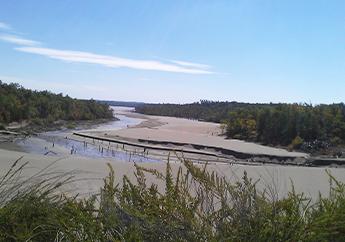
Metals are important to all aspects of modern life. From steel structures to aluminum beverage containers, to batteries and even solar panels; metals are vital to support modern lifestyles. Metals, or rather metallic minerals, are naturally occurring elements in the Earth’s crust. These elements are bound in mineral forms known as ore. Ore continues to be mined from the ground through various extraction methods.
Some metals are more valuable than others. The more valuable metals tend to be what are referred to as “heavy metals,” so named because of their relative densities and atomic weights in respect to other metals on the periodic table of elements. Common heavy metals found in parts of Missouri are arsenic (As), cadmium (Cd), chromium (Cr), cobalt (Co), lead (Pb), nickel (Ni), mercury (Hg) and zinc (Zn). Heavy metals are of concern because of the toxicity they present to aquatic life. Missouri's Water Quality Standards for a number of different metals are located in Code of State Regulations, 10-CSR 20-7. For some of these metals, the toxicity varies based on the hardness (calcium and magnesium levels) of the water. A number of impaired waters are listed at the state level due to heavy metals in streams.
A general history of mining in Missouri as well as other information on mines for industrial and metallic minerals is available through the department's Land Reclamation Program.
